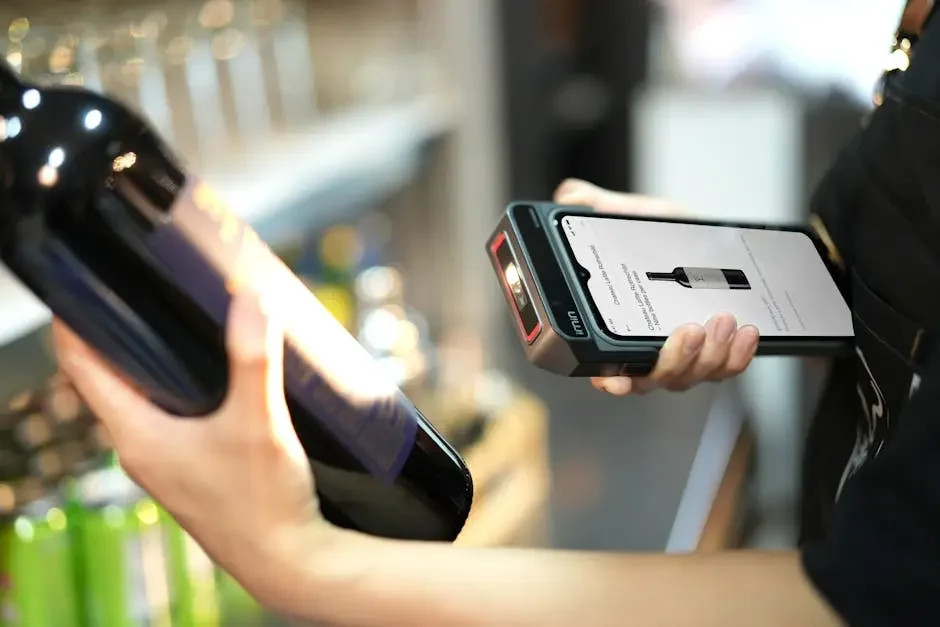How Can a POS System Benefit My Liquor Store?
In today's fast-paced retail environment, having an efficient point-of-sale (POS) system is crucial for any business. If you're running a liquor store, you might be wondering how a POS system can specifically enhance your operations and customer experience. This blog will outline the key benefits of implementing a POS system in your liquor store, making your business not only more manageable but also more profitable.
Step 1: Streamline Transactions
>A POS system simplifies the checkout process, reducing the time customers spend in line and improving their experience.
When patrons can complete their purchases quickly, they leave your liquor store happier, which can lead to repeat visits. Imagine a busy Friday evening where customers are eager to grab their favorite bottles; an efficient POS system handles transactions swiftly, allowing customers to focus on enjoying their time rather than waiting in line.
Moreover, mobile POS systems enable checkout anywhere in the store. This flexibility allows staff to assist customers on the floor, closing sales right where they stand. This convenience not only enhances the customer experience but also increases throughput during peak hours.
Additionally, faster transactions mean less chance of errors during checkout. The fewer mistakes made, the less time spent on returns or adjustments, allowing your staff to focus on providing top-notch customer service.
Step 2: Manage Inventory Effectively
With real-time inventory tracking, you'll know which products are selling fast and which ones need restocking, minimizing waste and maximizing profits.
By keeping an accurate eye on your stock levels, you can avoid the pitfalls of overstocking, which ties up capital in unsold inventory, and understocking, which frustrates your customers when their favorite drink is unavailable. This balance can be the difference between a customer choosing you over a competitor.
Integrating your POS with supplier logistics can further streamline the restocking process. When your system alerts you to low inventory, you can reorder efficiently and ensure you never run out of bestsellers. Having access to this data transforms your inventory management into a more proactive strategy rather than a reactive one.
Furthermore, sales data from your POS can reveal seasonal trends and help you adjust your inventory accordingly. For example, certain liquors may sell better during holidays or events. By anticipating these peaks, you can stock strategically and capture increased sales.
Step 3: Analyze Sales Data
Use the insights provided by your POS system to understand sales trends and customer preferences, helping you make informed purchasing and marketing decisions.
Analyzing sales data isn’t just about tracking what sells; it’s about uncovering patterns that can shape future strategies. Want to know which local wines are trending? Your POS system can provide detailed reports that reveal customer favorites, enabling you to cater specifically to your clientele.
Additionally, identifying peak shopping times can help optimize staff schedules, ensuring you have just the right number of employees on duty when demand is highest. This is not just a money-saver; it enhances the overall shopping experience for your customers as well.
Marketing initiatives can also be guided by sales analytics. Armed with the knowledge of which promotions led to increased sales, you can replicate successful strategies in the future, maximizing your returns on marketing efforts.
Step 4: Enhance Customer Relationships
A POS system can help you implement loyalty programs and track customer purchases, leading to personalized service and increased customer loyalty.
By capturing customer data, you can tailor promotions directly to your clientele’s tastes. For example, if a customer frequently buys a particular craft beer, you can send them a discount coupon for that brand when it’s on sale. This personal touch can significantly enhance customer satisfaction.
Moreover, a loyalty program powered by your POS can encourage repeat business. Customers appreciate feeling valued, and rewards for their purchases send a clear signal that their patronage matters. Your store can boost retention rates simply by acknowledging and reciprocating customer loyalty.
Lastly, gathering feedback becomes simpler with a POS system. Use email follow-ups or surveys to gauge satisfaction and learn how to better meet your customers’ needs. This two-way communication builds trust and fosters a stronger community around your liquor store.
Wrapping Up: Enhancing Your Liquor Store with a POS System
Investing in a POS system can transform your liquor store's operations, leading to better customer satisfaction, improved inventory management, and increased sales. By taking advantage of these benefits, you'll create a more efficient and enjoyable shopping experience for your customers, ultimately boosting your business's bottom line.

